Are you concerned about why your betta fish isn’t pooping? Constipation in betta fish can be tricky to understand and treat. In this article, you’ll learn how to recognize when your betta is constipated, what causes it, and how to treat it. We’ll also discuss the importance of diet and environment in maintaining your betta’s health. With this knowledge, you can provide your betta with the best care possible and keep them healthy and free of constipation.
Key Takeaways
- Overfeeding is a common cause of betta fish constipation, so it is important to feed them 2-3 times a day and avoid overfeeding.
- Inadequate diet lacking fiber can lead to constipation, so it is crucial to provide a balanced diet with enough nutrients and fiber.
- Lack of exercise can contribute to constipation, so it is recommended to remove substrate and decor, maintain a heated and filtered aquarium, and evaluate diet and feeding practices.
- To treat and prevent betta fish constipation, it is important to regularly check water quality, maintain a proper maintenance routine, consider fasting, use pre-soaked food, try an Epsom salt bath, use probiotics, and consult with a local aquatic veterinarian if necessary.
Introduction
You may be surprised to learn that constipation in betta fish is common and can have serious effects if left untreated. Betta fish constipation is a condition in which the fish has difficulty passing fecal matter, resulting in a bloated or distended belly. It is important to understand the causes and treatments of constipation in betta fish in order to prevent and treat the condition.
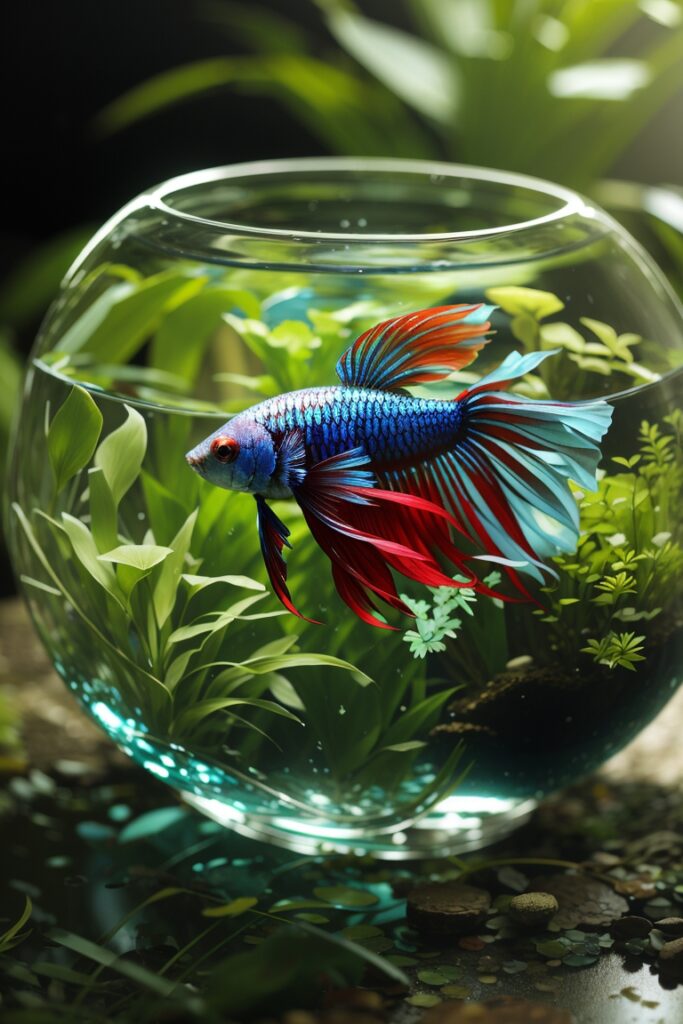
Constipation in betta fish can have many causes, such as insufficient food intake, overfeeding, poor water quality, or a change in water temperature. Inadequate food intake can lead to decreased bowel movements, while overfeeding can cause impaction and halt food movement in the gastrointestinal tract. Poor water quality or a change in water temperature can also inhibit the fish’s ability to digest food properly.
Treatment and prevention of betta fish constipation requires identifying and addressing the underlying cause. Removing substrate and decor can help to better assess bowel movements, and checking tank water temperature and evaluating diet and feeding practices is important. Maintaining a heated and filtered aquarium and regularly checking water quality is also necessary. Additionally, it is important to feed the betta appropriately and use fresh food. If any concerns or issues arise, it is best to consult a local aquatic veterinarian for assistance.
Causes of betta fish constipation
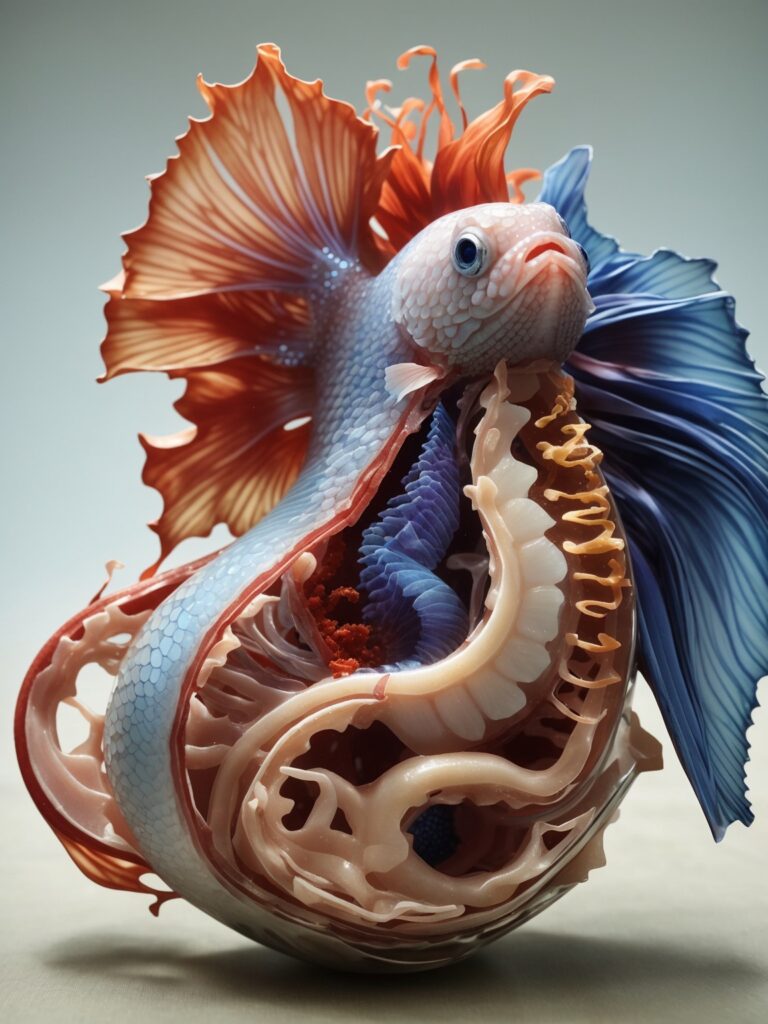
Have you ever wondered why your betta isn’t pooping? It could be because of overfeeding, inadequate diet, or lack of exercise. Let’s take a look at these potential causes and how to address them.
Overfeeding
If you overfeed your betta, it can lead to constipation and cause their bowels to become blocked. Overfeeding can lead to impaction in the fish’s digestive tract, resulting in a distended belly and no bowel movements. Betta fish should only be fed 2-3 times a day and the food should be opened within the past 6 months. | Fish Health | Betta Fish Overfeeding | Betta Fish Constipation |
|———————————————————————————————–|
| Feed 2-3 times/day | Monitor water temp. | Check food freshness |
| Use fresh food | Monitor water quality | Evaluate feeding practices |
| Avoid overfeeding | Maintain heated & filtered aquarium | Seek help from a vet |
Inadequate diet
Not providing your betta with a balanced and nutritious diet, or feeding them too little, can also lead to constipation. A fiber-rich diet is essential for your betta’s digestive system to function properly. Without it, your fish could suffer from several dietary issues, including constipation.
- A lack of fiber:
- Can lead to a buildup of undigested material in the intestines, resulting in constipation.
- Can also cause the intestines to become inflamed, leading to further digestive system dysfunction.
- Too little food:
- Can contribute to the fish not getting enough nutrients, resulting in poor health and constipation.
- Can also cause the fish to become lethargic and have difficulty swimming.
Therefore, it’s important to provide your betta with a balanced and nutritious diet to ensure proper digestion and prevent constipation.
Lack of exercise
You also need to make sure your betta is getting enough exercise, as a lack of exercise can lead to constipation. Exercise keeps the betta’s digestive system working properly and can help prevent constipation. Symptoms of constipation in betta fish include a distended belly and lack of bowel movements. Treatment and prevention of constipation in betta fish include:
| Activity | Benefits |
|---|---|
| Remove substrate and decor | Better assessment of bowel movements |
| Check tank water temperature | Appropriate environment for digestion |
| Evaluate diet and feeding practices | Proper nutrition for betta fish |
| Maintain a heated and filtered aquarium | Healthy water conditions |
| Regularly check water quality | Avoid illnesses |
| Follow a proper maintenance routine | Promote healthy digestion |
Symptoms of betta fish constipation
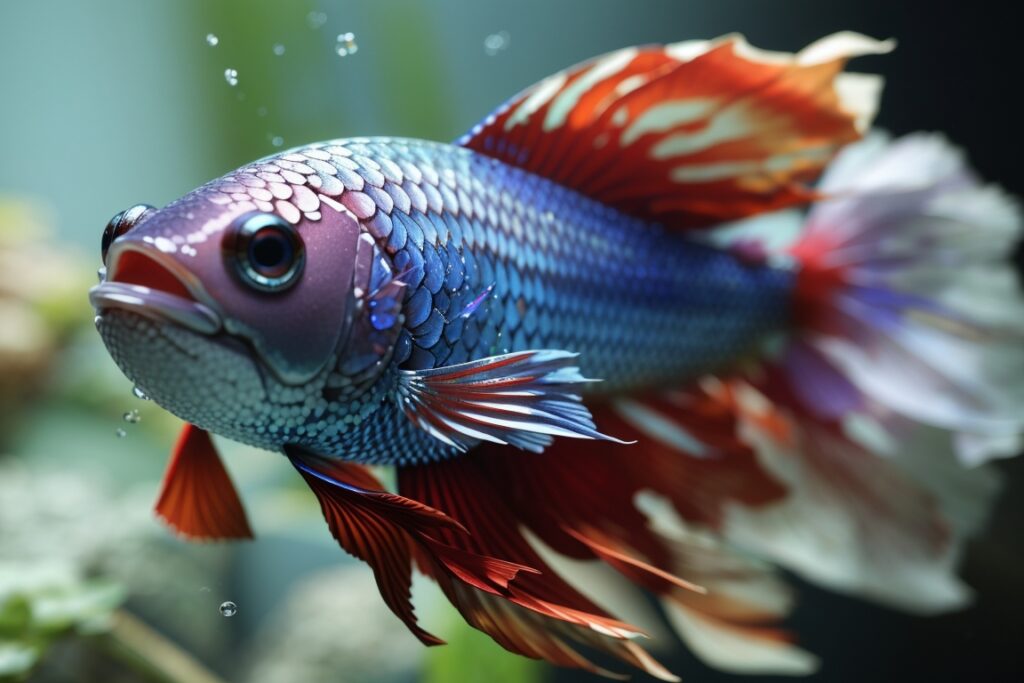
You may notice a bloated appearance, reduced appetite, difficulty swimming or staying upright, or the presence of stringy or white feces, which are all signs of betta fish constipation. Betta fish constipation is a common issue caused by a variety of factors, including insufficient food intake, overfeeding, or underlying issues affecting appetite. To treat and prevent betta fish digestion difficulties, it’s important to:
- Check tank water temperature
- Evaluate diet and feeding practices
- Maintain a heated and filtered aquarium
- Regularly check water quality
- Follow a proper maintenance routine
When it comes to betta fish food blockage, the key is to feed appropriately with fresh food. Feed your betta 2-3 times a day with food opened within the past 6 months, and avoid overfeeding which can lead to impaction and betta fish intestinal blockage. If you are concerned about overfeeding and constipation, contact an aquatic veterinarian for advice. If your betta is not eating or has a reduced appetite, identify potential reasons and address underlying issues. If necessary, seek assistance from an aquatic veterinarian.
Treatment options for betta fish constipation
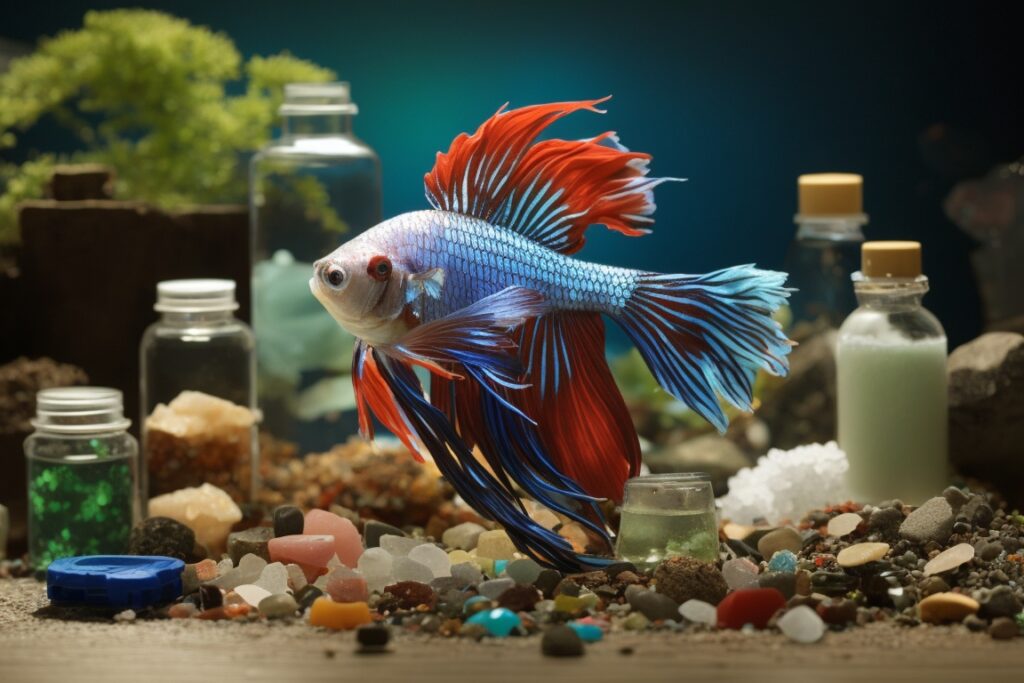
Are you concerned about your betta’s constipation? If so, you can try fasting, pre-soaked food, an Epsom salt bath, or probiotics as treatment options. Discussing these with your local aquatic veterinarian will help you to decide the best course of action for your betta!
Fasting
Fasting your betta for a short period of time can be an effective treatment option for constipation. This can help reset the digestive system and clear a bowel obstruction. Here’s how:
- Pre-soaking fish food:
- Softens food, aiding digestion
- Can be done with flakes, pellets, or frozen food
- Soak for 5-10 minutes
- High-fiber diet:
- Vegetables, such as blanched spinach or zucchini
- High-quality, protein-rich food
- Feed in small amounts multiple times a day
These betta fish constipation remedies, along with regular water changes, can help keep fish healthy and prevent future constipation.
Pre-soaked food
You’re able to treat betta fish constipation by pre-soaking their food as part of a healthy diet. Pre-soaking fish food makes it easier for the fish to digest it quickly and efficiently. This can help to stimulate their digestive system and prevent constipation. Types of food that can be pre-soaked include flakes, pellets, and freeze-dried foods. It is recommended to soak the food for 10-15 minutes before feeding. Additionally, maintaining a heated and filtered aquarium, along with regular water changes, can help keep the betta’s tank clean and provide a healthy environment. Developing a healthy feeding routine is also essential for the betta’s health. Feeding two to three times a day with food that is opened within the past 6 months is the best diet for betta fish with constipation. Following proper aquarium maintenance and feeding habits can help prevent and treat constipation in betta fish.
Epsom salt bath
Besides pre-soaking their food, you can also treat betta fish constipation by administering an Epsom salt bath; however, it should be done properly for maximum effect. To do this:
- Prepare a separate container:
- Fill it with dechlorinated water
- Add one teaspoon of Epsom salt for every gallon of water
- Place the betta in the container
- Let the fish soak for about 10 minutes
Following a balanced diet and administering an Epsom salt bath can help reduce constipation in betta fish. The bath helps in flushing out toxins and relieving intestinal discomfort. Make sure to use the right amount of salt in the bath and keep an eye on the betta to ensure it does not show any signs of distress. If any symptoms persist, contact an aquatic veterinarian for advice.
Probiotics
You can also treat betta fish constipation by administering probiotics, which can help regulate gut health in betta fish. Probiotics are beneficial bacteria that maintain the balance of the betta fish’s intestinal health and help prevent gastrointestinal problems. These bacteria help to digest food, absorb nutrients, and fight infections. Probiotics can be administered in multiple ways, such as through water additives, food, or directly into the betta’s mouth. To ensure the best gut health for your betta, it is important to choose a probiotic specifically designed for betta fish. Once the probiotic has been administered, it is important to monitor your betta and observe any changes in its behavior. If you notice any signs of constipation, it is important to seek help from an aquatic veterinarian. Probiotics can help to improve your betta’s gut health and prevent constipation, allowing them to live a healthy and happy life.
Prevention of betta fish constipation
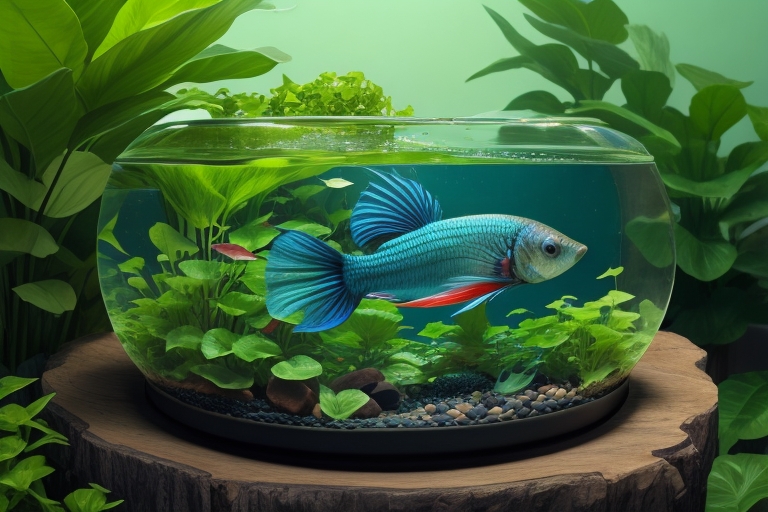
To prevent betta fish constipation, it’s important to feed them properly and maintain their tank. You should feed them 2-3 times a day with fresh food, keep the tank temperature constant, and regularly check water quality.
Proper feeding habits
To properly prevent betta fish constipation, it is important to feed them the right amounts of food and have a varied diet. Betta fish care involves understanding betta fish digestion and their needs. For instance, overfeeding can cause impaction and impacted intestines, while underfeeding can lead to decreased bowel movements. To prevent these issues:
- Feeding:
- Feed bettas 2-3 times a day with food opened within the past 6 months
- Avoid overfeeding, portion control is important
- Diet:
- Provide a varied diet to meet their nutritional needs
- Check tank water temperature and evaluate diet regularly
These betta fish constipation prevention tips are essential for the health and well-being of your betta fish. Contact a local aquatic veterinarian if you have any concerns or issues regarding your betta fish.
Tank maintenance
By maintaining a heated and filtered aquarium, as well as regularly changing the water and cleaning the gravel, you can help prevent betta fish constipation. Betta fish have a unique anatomy that requires specific water parameters and quality in order to stay healthy and properly digest their food. Therefore, it is important to maintain a regular maintenance routine in order to keep the water clean and free from pollutants that can lead to constipation. By regularly checking the water quality and making sure that it is within the ideal range for a betta fish, you can help ensure that your fish stay healthy and prevent constipation. Additionally, it is important to keep the tank substrate and decor clean, as they can accumulate waste and uneaten food, leading to constipation. By following these steps, you can help keep your betta fish healthy and prevent constipation.
Conclusion
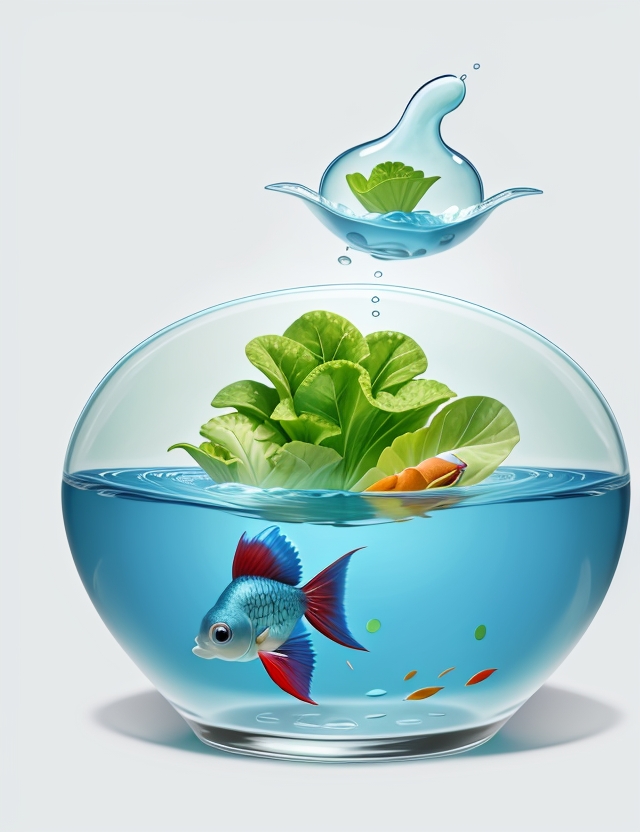
By taking the steps outlined in this article, you can help prevent and treat betta fish constipation and ensure your pet’s well-being. To start, you should remove substrate and decor to better assess bowel movements and evaluate diet and feeding practices. It is also important to ensure the tank water temperature is optimal and regularly check water quality. Additionally, maintain a heated and filtered aquarium, and follow a proper maintenance routine.
When it comes to feeding, it is important to feed appropriately and use fresh food. Betta fish should be fed 2-3 times a day with food opened within the past 6 months. Overfeeding can cause impaction and halt food movement in the gastrointestinal tract, so it is important to avoid this. If you are concerned about overfeeding and constipation, contact an aquatic veterinarian for assistance. Decreased appetite can be due to various causes, so it is important to identify potential reasons and address underlying issues affecting appetite.
To conclude, there are natural ways to relieve betta fish constipation such as betta fish laxatives, but it is important to contact an aquatic veterinarian for advice if the issue persists. By taking the right steps, you can help prevent and treat betta fish constipation and swim bladder disorder and ensure the well-being of your pet.
NESTED BULLET POINT LIST:
- Prevent and Treat Betta Fish Constipation:
- Remove Substrate and Decor:
- Better assess bowel movements
- Evaluate diet and feeding practices
- Ensure Tank Water Temperature is Optimal
- Regularly Check Water Quality
- Maintain a Heated and Filtered Aquarium
- Follow a Proper Maintenance Routine
- Feed Appropriately and Use Fresh Food
- Avoid Overfeeding
- Identify Potential Reasons for Decreased Appetite
- Seek Professional Assistance if Necessary
- Natural Ways to Relieve Betta Fish Constipation:
- Betta Fish Laxatives
- Contact an Aquatic Veterinarian for Advice if Issue Persists
Frequently Asked Questions
How Often Should I Feed My Betta?
Feed your betta 2-3 times a day with food opened within the past 6 months to prevent constipation. Avoid overfeeding and check for underlying issues affecting appetite. Seek help from a local aquatic veterinarian if necessary.
How Do I Know if My Betta Is Constipated?
Signs of constipation in your betta include a distended belly, lack of bowel movements, and white or clear fecal movements. If you notice these symptoms, contact an aquatic veterinarian for help.
What Are the Signs of a Healthy Betta Diet?
A healthy betta diet is characterized by normal-looking poop that is long, stringy, and brown or black. Feed your betta 2-3 times a day with fresh food for optimal health. Monitor water temperature and quality, and maintain a heated and filtered aquarium. If you are concerned, consult a local aquatic veterinarian.
What Is the Best Temperature for a Betta Tank?
For a healthy betta, the ideal tank temperature is between 76-82 degrees Fahrenheit. Make sure to use a thermometer to monitor the temperature and adjust it as needed.
What Can I Do if I’m Concerned About Overfeeding My Betta?
If you’re concerned about overfeeding your betta, contact an aquatic veterinarian. They can help evaluate your diet and feeding practices, and suggest ways to make sure your betta is getting the right amount of food.
Conclusion
You’ve now learned about the causes, symptoms, and treatments of betta fish constipation. You’re now equipped with the knowledge to identify and treat constipation in your betta fish. With a proper diet, environment, and monitoring your betta’s health, you can help keep them healthy and free of constipation. Don’t hesitate to reach out to your vet if you have any concerns. With the right care, your betta can have a long, happy life!

